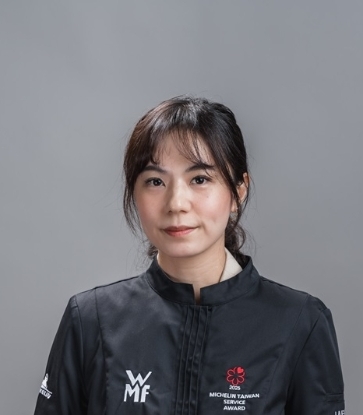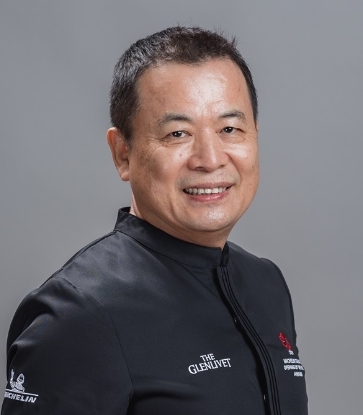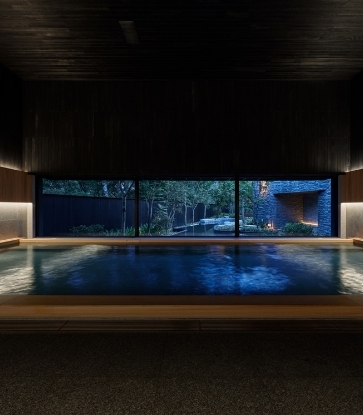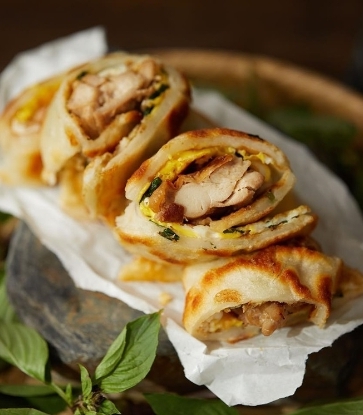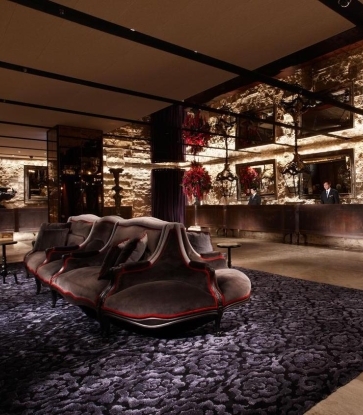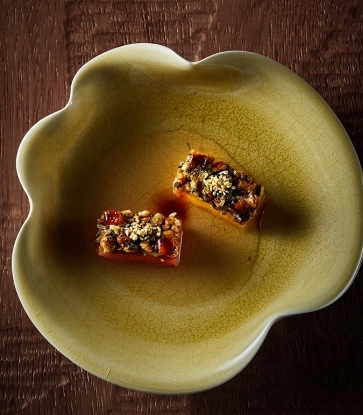Despite being a graduate of the Department of Applied Foreign Languages, 30-year-old S Hsu, Restaurant Manager at one-MICHELIN-Starred restaurant Ban Bo, self-deprecatingly jokes about being very introverted when doing interviews.
Yet, her maturity and meticulousness shine through in conversations about her work, evidence of her worthiness of the MICHELIN Guide Taiwan 2024 Service Award presented by The Glenlivet, which awards a service philosophy that goes beyond being thoughtful and considerate, driven by professionalism and bold, innovative thinking, turning every guest’s needs and expectations into warmth and satisfaction.

In fact, Hsu began her career working part-time in college and has accrued valuable experience over a ten-year span in hotels and restaurants like MICHELIN Guide hotel W Taipei’s YEN Ziyan Chinese Restaurant, MICHELIN-Guide hotel Kimpton Da An Taipei’s selected restaurant The Tavernist, mod Spanish restaurant Jarana and now in fine dining.
An introvert working a people-facing job sounds like an unnatural fit, but as Hsu shyly explains: “When I put on the uniform, it’s like I’m not just myself, I become part of the restaurant and am able to play my role well on this stage. She switches between her work and private personas with ease, even at the end of a long and tiring workday. “I just start cleaning the fish tank at home — scrapping algae off the glass with a scraper is very healing, like squeezing a pimple,” she laughs.
Although relatively introverted in private, she finds interacting with guests a very interesting part of her job, which brings new color to each day. In fine dining, there is always a philosophy or story to be shared with guests, making the relationship more intimate and friendly. “I wouldn’t say I’m just a server, I am really sharing what I see, know and understand with a friend and I get a different response each time and that is what attracts me to this job the most.”

Getting to know Ban Bo
As Hsu describes, Ban Bo is a representation of the scenery and stories of Taiwan." We use our cuisine to paint a picture of the lesser-known sights, sounds and tastes of Taiwan. This sentiment extends to the overall restaurant experience, from the decor to the tableware, which are crafted by local artisans."
She recalls how at her first meeting with restaurant founder Cheng Lee and chef Steven Su, they presented their vision for the restaurant in a PowerPoint deck like she was a client, explaining their purpose, goals and target market. “They were passionate about their mission, which was to capture the stories that Taiwanese people take for granted and share them with a wider world. I had never felt such passion before.”
Hsu shares how when Su creates a dish, he first lets all the kitchen crew see and taste it before seeking a second opinion from the front-of-house staff in order to get a sense of the differing views that might arise from diners. The different perspectives often spark dynamic discussions and helps the whole restaurant team come to a mutual understanding and develop strong synergy.
RELATED: Ban Bo Chef Steven Su on Crafting a Taiwanese Documentary Through Food

A popular signature dish on the menu is "Jabuticaba", two glossy pectin-bound globes of fermented tree grape preserve and foie gras infused with Taiwanese braising spices. Cut open and smeared onto sourdough bread, the creamy spread is a nod to familiar Taiwanese flavours.
"Actually, jabuticaba come from Brazil and are abundant in Taiwan because they have adapted to our climate. Most diners tell me that they have never seen it before and mistake it for cherry,” she says. “It’s neither a cherry nor a grape. The name shu pu tao or (tree grape) is just what the Taiwanese people call it. And I think it’s really amusing that this dish looks like a fruit but doesn’t taste like it at all.”
Observer and Storyteller
The crucial bridge between the restaurant and its guests, Hsu believes that the front-of-house team plays both the role of a storyteller and observer – each member must be able to convey the concept of the restaurant and observe the needs of the guests and adapt to every situation. Hsu’s team does their best to understand and internalise chef Su’s intentions behind each dish he creates and convey them accurately to guests. She explains how Su designs each dish with a “soul”, “backbone” and “skin” – the ideas and stories, the taste and the presentation respectively. “We follow that same train of thought when presenting a dish to our guests. First, we paint a picture of the story behind the dish, then we talk about its flavours and then finally how to best enjoy it. For example, we would describe how you can smell the fresh grass by a lotus pond and see little frogs and lotus leaves floating atop the water, then we would mention how to eat the dish,” Hsu says.

No matter how practiced and how meticulous service is, building a relationship with the guest is still an art form. “Everyone has natural reservations when meeting strangers, us as service staff and guests alike. I usually give use the first three courses to allow the guests to warm up to us. It might take about half an hour, but by then, they should be able to feel our hospitality,” she says.
To Hsu, the front-of-house team should exist like shadows. When guests walk in, what they should not see if heavy make-up or stiff suits, but a calm uniformity that is inviting and approachable.
She adds: “We always serve discreetly. Because of the lighting in the restaurant, the service staff feel unobtrusive and far, but when the guests have needs, we are already primed to serve. We pay attention to every move of our guests without making them feel uncomfortable. The guests have their own privacy to chat with the tables all widely spaced, but we are always attentive to provide the appropriate services for their needs.”
A front-of-house team with synergy is like a well-rehearsed orchestra, with different instruments being played by different people. “How can we play together to create a seamless symphony? Are we in such rhythm and harmony that there isn’t even a 0.1 second dissonance?” Hsu believes that this greatest challenge of the job is also its most fulfilling aspect.
“I wouldn’t say I’m just a server, I am really sharing what I see, know and understand with a friend and I get a different response each time and that is what attracts me to this job the most.”
Words of advice
Looking at the widespread labor shortage in the restaurant industry, Hsu leans on her personal experience to encourage young people in the service industry to actively invest in their jobs. “[When stressed] you can calm down and think things through. Think about your goals and how to come to an equilibrium between your dreams and your remuneration. Beyond monetary gain, what else are you getting from this job, what are you learning here and what are you taking away?”
As part of her leadership role in Ban Bo’s front-of-house, Hsu gathers the whole team after each meal service for a debrief to discuss feedback from the guests. In this time, they talk about how to improve their service and how to strengthen the guest experience. While not a common practice in the industry, she feels that it is a necessity. “Each debrief is a good learning opportunity, especially for those who are new to the team and are working on a blank slate.” Hsu admits that when she first began this practice, she felt a lot of impatience from colleagues who just want wanted to end their shift quickly. However, over time, the team began to see the value and importance of these sessions.
For Hsu, the greatest satisfaction comes from the time spent with her guests. “Each day starts with folding menus, linen washing and ironing, cleaning and tidying. The service industry is a very repetitive job. How then can we derive joy and satisfaction from our days? For me, a large part of that comes from the three hours of meal service and the guest experience,” she says sincerely.
RELATED: A MICHELIN Inspector's Love Letter to Taiwan: 5 Delightful Discoveries I've Encountered






